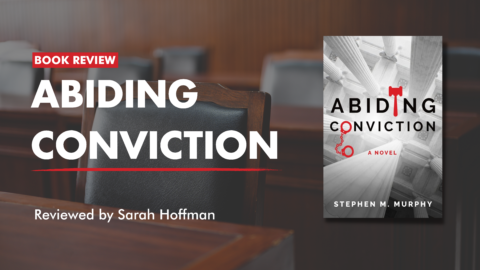Editor’s note: Since press time, San Francisco’s Police Commission passed new body-worn camera measures that had been stalled in negotiations for more than two years.
After the death of George Floyd reignited national conversations about police violence against Black people, activists across the country raced to learn what was happening in their local cities so they could map out meaningful reforms.
San Francisco was one step ahead, thanks to the Bar Association of San Francisco’s (BASF) Criminal Justice Task Force, formed in the wake of Michael Brown’s death in Ferguson, Missouri. Since early 2015, the task force has worked collaboratively with the San Francisco Police Department (SFPD) and other law enforcement agencies, diving deep in its research of best practices and pushing for new policies and procedures to protect the legal rights of local citizens.
In the wake of this year’s protests, the task force began asking how it could seize the moment and increase the pace of urgently needed reforms, said Yolanda Jackson, BASF executive director.
The task force zeroed in on the meet-and-confer process, which under their observation led to months or years of delay. Even when the police chief and San Francisco Police Commission have agreed on policy changes, implementation often gets bogged down in negotiations between the police union and the human resources department, Jackson said. These closed-door meetings can be dominated by arguments over minutiae.
“It can stay there for years, fighting over commas and semicolons,” Jackson said. To tackle the meet-and-confer issue, the task force started by doing what lawyers do best: researching and writing.
Yet the members of the task force—made up of prosecutors, defense attorneys, civil rights attorneys, law professors, the judiciary, members of law enforcement, and police oversight agencies—quickly realized they would need some help. No one on the panel had expertise in labor and employment law.
Task force member Kevin M. Benedicto, a litigator in the San Francisco office of Morgan, Lewis & Bockius, brought the idea back to his law firm, which had organized a firmwide Mobilizing for Equality racial justice task force. The meet-and-confer issue was a perfect fit for its pro bono efforts.
Within a matter of weeks, Morgan Lewis lawyers based in San Francisco and Los Angeles looked into the public sector bargaining laws and helped draft a series of letters to city officials.
Morgan Lewis lawyers explored how the meet-and-confer process came to exist and how the courts have interpreted that language. They discovered that the process, intended to address how policies affect working conditions for officers, was being interpreted very broadly. As a result, almost every policy change under consideration was subject to bargaining.
The lawyers then assisted in drafting a series of letters—which the BASF Board of Directors ultimately approved—urging city officials to bypass the meet-and-confer process in two instances: changes to the body-worn camera policy and a ballot initiative regarding police staffing levels.
Body-Worn Cameras
The San Francisco Police Department has used body-worn cameras for transparency and accountability since 2016. But BASF and other community organizations have called for changes in the policy to prohibit officers from reviewing the camera footage before making official reports and statements.
A January 2018 policy change, approved unanimously by The San Francisco Police Commission, has been stalled in meet-and-confer negotiations ever since. It would restrict officers from reviewing footage in cases of officer-involved shootings and in-custody deaths.
“We stand in partnership with the Commission, the SFPD, and the City to achieve our shared goals for a fairer criminal justice system,” BASF President Stuart C. Plunkett’s letter to the police commission said, citing stakes for San Francisco that “could not be greater.”
Police Staffing Levels
A second letter urged the city to move forward with a November ballot measure establishing a new process for setting the size of the city police force.
A 1994 amendment to the City Charter calls for the Police Department to maintain 1,971 full-time officers. Supervisor Norman Yee introduced a charter amendment to eliminate this arbitrary number and require the Police Department to submit a report and recommendation on police staffing levels to the Police Commission every two years.
Again, the letter cited the meet-and-confer process, which had threatened to delay the ballot measure until 2022. A few weeks after BASF sent the letter, the San Francisco Board of Supervisors voted to put the measure on the ballot.
BASF’s letter urged the city to adopt a new approach to negotiating police department matters with the police union that takes into consideration other factors besides improving labor-management relations.
“The City’s approach must also prioritize transparency, timeliness, and the advancement of substantive police reforms,” Plunkett’s letter said. “The law supports these principles. It recognizes that formulating policies that promote public safety and trust between police agencies and the communities they serve is a fundamental duty of local government that must not be encumbered with undue delays, or worse, bargained away behind closed doors.”
Benedicto said the letters represented a perfect example of the role lawyers and bar associations can play in advancing changes within the framework of the law.
“Lawyers are good at distilling research, making recommendations, bringing an analytical mindset to issues,” he said.
In addition to sending the meet-and-confer letters, BASF and the task force is helping the city government prioritize a long list of potential police reforms, Jackson said.
Based on its years of experience closely tracking the city’s progress, the task force recommended the city focus on these five areas:
- Expedite the implementation of the Serious Incident Review Board to review use-of-force investigations and report on them publicly within 30 days.
- Appoint and confirm experienced police reform advocates to two vacant seats on the Police Commission.
- Require the police to provide information to the Department of Police Accountability, which investigates complaints against officers.
- Create greater transparency regarding officer disciplinary hearings and findings.
- Hold the police department and commission accountable to deadlines and increase community participation in the reform process.
Since the task force was formed, task force members have worked to rewrite the police use-of-force policy, researched and advocated against the use of Tasers, weighed in on a statewide effort to reform the bail system, and helped shape anti-bias policing measures. For more detail about this work, read the Fall 2019 issue of San Francisco Attorney.
Assisting Other Bar Associations
This year’s nationwide reckoning of racial justice issues has prompted bar associations across the country to get involved in state and local efforts for police reform.
In July, Jackson presented a webinar to dozens of bar officials across the country, walking them through the process of forming and staffing a task force and deciding what issues to focus on. She described how the task force was able to pivot as new issues came to the forefront and others waned.
“We’ll be the catalyst for inviting people into a room. Give us an issue and we’ll start researching it nationally,” Jackson said. “We know the city just doesn’t have those resources. We’re going to do what lawyers do best, which is research, write analyses, and see if that helps.”
About the Author:
Laura Ernde is a San Francisco-based writer and communications consultant. She has covered legal affairs for more than a decade, as a journalist and former editor of the California Bar Journal.





0 comments on “BASF Task Force Facilitates Police Reform”